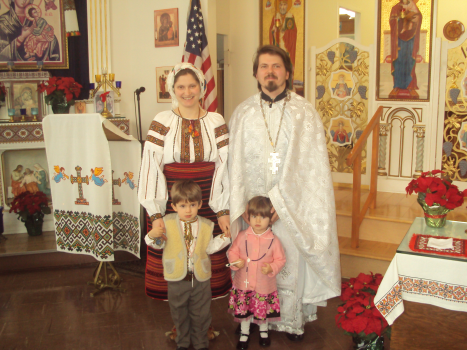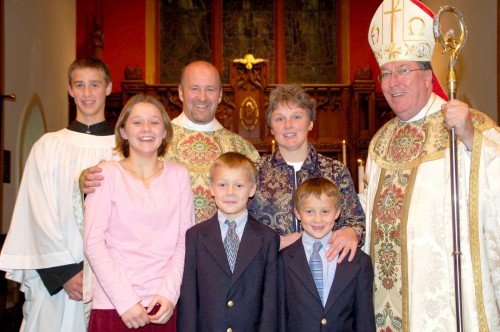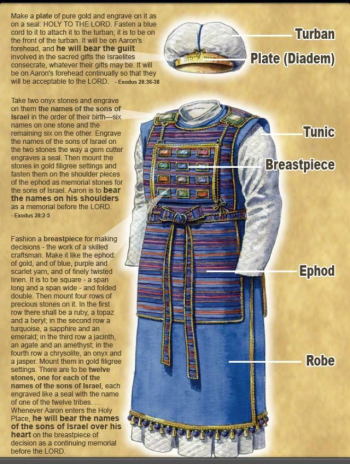You blew it again . . .
WHO are the "SAINTS" being spoken of here?
Rev. 5:8
And when he had taken the book, the four living creatures and the four and twenty elders fell down before the Lamb, having each one a harp, and golden bowls full of incense, which are the prayers of the saints.
No mention of intercession prayers of the saints--
the prayers. This gives not the least sanction to Rome’s dogma of our praying to saints. Though they be employed by God in some way unknown to us to present our prayers (nothing is said of their interceding for us),
yet we are told to pray only to Him (Rev_19:10). Their
own employment is praise (whence they all have harps): ours is prayer (JFB). Rev_8:3-4, Lev_16:12-13, 1Ch_23:30, Psa_141:2, %Isa_63:16, +*Jer_10:25, Mal_1:11, +*Mat_6:10, Luk_1:9-10; Luk_18:7-8, Act_10:4; Act_10:31.
Revelation 5:8 (LEB)
"And when he took the scroll, the four living creatures and the twenty-four elders fell down before the Lamb, each one holding a harp and golden bowls full of incense, which are the prayers of the saints."
Greek Text with Parsing
Καὶ ὅτε ἔλαβεν τὸ βιβλίον, τὰ τέσσαρα ζῷα καὶ οἱ εἴκοσι τέσσαρες πρεσβύτεροι ἔπεσαν ἐνώπιον τοῦ Ἀρνίου, ἔχοντες ἕκαστος κιθάρας καὶ φιάλας χρυσᾶς γεμούσας θυμιαμάτων, αἵ εἰσιν αἱ προσευχαὶ τῶν ἁγίων.
Detailed Breakdown
Καὶ ὅτε ἔλαβεν τὸ βιβλίον
Καὶ (kai): Conjunction, "and."
ὅτε (hote): Conjunction, "when."
ἔλαβεν (elaben): Verb, aorist active indicative 3rd person singular of λαμβάνω (lambano), "he took."
τὸ βιβλίον (to biblion): Noun, accusative singular neuter, "the scroll/book."
τὰ τέσσαρα ζῷα καὶ οἱ εἴκοσι τέσσαρες πρεσβύτεροι
τὰ (ta): Definite article, nominative plural neuter, "the."
τέσσαρα (tessara): Adjective, nominative plural neuter, "four."
ζῷα (zoa): Noun, nominative plural neuter of ζῷον (zoon), "living creatures."
καὶ (kai): Conjunction, "and."
οἱ (hoi): Definite article, nominative plural masculine, "the."
εἴκοσι τέσσαρες (eikosi tessares): Adjective, nominative plural masculine, "twenty-four."
πρεσβύτεροι (presbyteroi): Noun, nominative plural masculine of πρεσβύτερος (presbyteros), "elders."
ἔπεσαν ἐνώπιον τοῦ Ἀρνίου
ἔπεσαν (epesan): Verb, aorist active indicative 3rd person plural of πίπτω (pipto), "they fell."
ἐνώπιον (enopion): Preposition, "before/in the presence of."
τοῦ Ἀρνίου (tou Arniou): Definite article and noun, genitive singular neuter of Ἀρνίον (Arnion), "the Lamb."
ἔχοντες ἕκαστος κιθάρας καὶ φιάλας χρυσᾶς γεμούσας θυμιαμάτων
ἔχοντες (echontes): Participle, present active nominative plural masculine of ἔχω (echo), "having/holding."
ἕκαστος (hekastos): Pronoun, nominative singular masculine, "each one."
κιθάρας (kitharas): Noun, accusative plural feminine of κιθάρα (kithara), "harps."
καὶ (kai): Conjunction, "and."
φιάλας (phialas): Noun, accusative plural feminine of φιάλη (phiale), "bowls."
χρυσᾶς (chrysas): Adjective, accusative plural feminine of χρύσεος (chryseos), "golden."
γεμούσας (gemousas): Participle, present active accusative plural feminine of γεμίζω (gemizo), "full of."
θυμιαμάτων (thumiamaton): Noun, genitive plural neuter of θυμίαμα (thumiama), "incense."
αἵ εἰσιν αἱ προσευχαὶ τῶν ἁγίων
αἵ (hai): Relative pronoun, nominative plural feminine, "which."
εἰσιν (eisin): Verb, present indicative 3rd person plural of εἰμί (eimi), "are."
αἱ προσευχαὶ (hai proseuchai): Definite article and noun, nominative plural feminine of προσευχή (proseuche), "the prayers."
τῶν ἁγίων (ton hagion): Definite article and noun, genitive plural masculine of ἅγιος (hagios), "of the saints."
In Revelation 5:8, the term "saints" (ἁγίων, hagion) refers to the holy ones whose prayers are symbolically
presented to God as incense by the four living creatures and the twenty-four elders. The passage highlights the reverence and importance of the prayers of the saints (believers in Christ), who are both living and deceased. The elders and living creatures (representatives of the redeemed) offer these prayers before the Lamb (Jesus Christ)--
From a non-Catholic perspective, the "saints" in this context can be understood as the collective body of believers,
whose prayers are continuously before God, reflecting their faith and devotion.
Rev 5:8 And Καὶ when ὅτε He had taken ἔλαβεν the τὸ scroll, βιβλίον, the τὰ four τέσσαρα living creatures ζῷα and καὶ the οἱ twenty-four εἴκοσι . . . τέσσαρες elders πρεσβύτεροι fell down ἔπεσαν before ἐνώπιον the τοῦ Lamb, Ἀρνίου, each ἕκαστος having ἔχοντες a harp, κιθάραν and καὶ golden χρυσᾶς bowls φιάλας being full γεμούσας of incenses, θυμιαμάτων, which αἵ are εἰσιν the αἱ prayers προσευχαὶ of the τῶν saints. ἁγίων.
of saints. or, the saints. +Rev_8:3; Rev_13:7; Rev_13:10; Rev_11:18; Rev_18:20, Lev_11:45, %Deu_33:2, +Psa_16:3; Psa_34:9, Dan_7:18; Dan_7:22; Dan_7:27, Act_9:13, 1Co_1:2; 1Co_6:1-2, Eph_1:1, +*Jud_1:3.
Transliteration: proseuchai
Morphology: N-NFP
Noun - Nominative Feminine Plural
Strong's no.: G4335 (προσευχή)
Meaning: (a) prayer (to God), (b) a place for prayer (used by Jews, perhaps where there was no synagogue).
You might want to try again
@BreadOfLife








 unless wikipedia is wrong.
unless wikipedia is wrong.